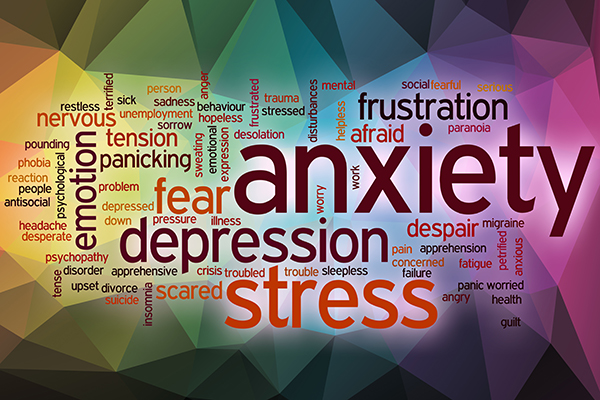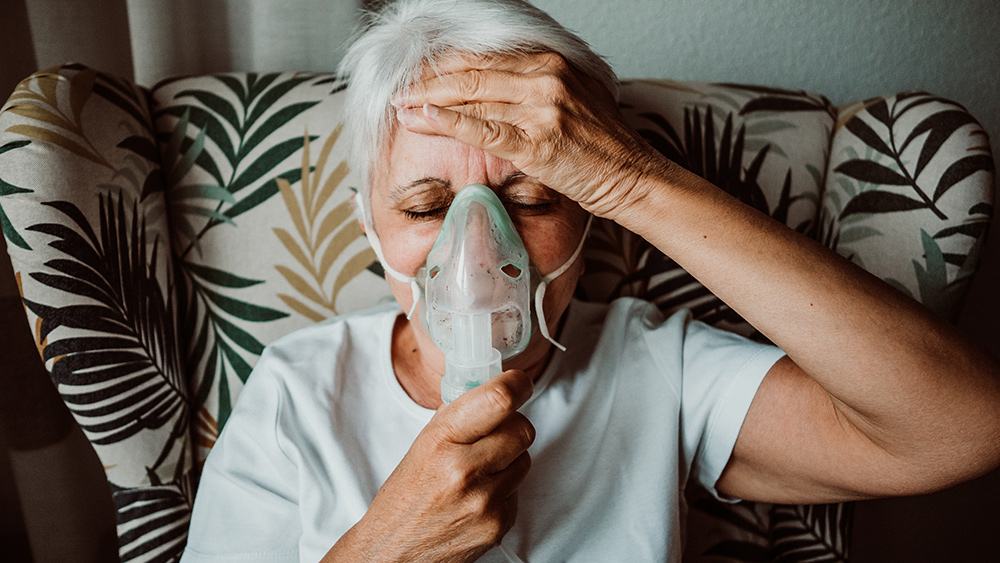How to remain calm in stressful situations
03/14/2023 / By Zoey Sky

Prepping can sometimes be stressful, but you need to be calm when disaster strikes, especially if you are the leader of your family or survival group.
When facing a disaster, how you react may decide the outcome. Staying calm ensures that you can make the right decision in time-sensitive scenarios.
Below are some strategies that can help you stay calm in high-pressure situations after SHTF. (h/t to Survivopedia.com)
Avoid alcohol and drugs
High-pressure situations aren’t always straightforward. Even if only one thing goes wrong, it can derail the rest of your emergency preparedness plans.
When this happens, you need as much control as possible.
But this can be tricky if you are drunk or on drugs, so it’s best to limit your intake of alcohol or drugs. If possible, avoid these substances completely.
If you are sober and clear-headed when SHTF, you can quickly make decisions for yourself or your family.
According to studies, smoking can increase anxiety even though some people use it to relieve stress. Experts think this is because nicotine is a stimulant, and anxiety is a common side effect of smoking.
You should also avoid stimulants like caffeine during stressful situations. High-caffeine beverages like coffee or energy drinks can make you feel more stressed and increase your blood pressure.
Stimulants like caffeine and depressants like alcohol will negatively affect your performance in high-pressure situations like a natural disaster.
Research shows that alcohol increases your body’s cortisol secretion over time. Short-term effects of this include impairing your body’s ability to think critically and make the best decisions in stressful situations.
Breathing exercises
If you are looking for a simple way to stay calm when you are stressed, try breathing exercises. These exercises can help your body feel calmer.
There are psychological and physiological reasons behind this strategy. Breathing increases the flow of oxygen to your brain.
While this process happens daily, it can be crucial when you are facing stressful situations. When you breathe, you stimulate the parasympathetic nervous system (PNS).
The PNS works to relieve your body when you are stressed. It’s also a critical part of digestion and other bodily processes.
If you are stressed and overwhelmed, try breathing exercises. Deep breaths are particularly helpful when trying to reduce stress.
First, find a quiet place without any distractions. Inhale through your nose for five seconds, then exhale from your mouth for five seconds.
Repeat the exercise 10 times until you feel calmer. Doing breathing exercises for several minutes can significantly impact your stress levels.
Eat stress-reducing foods
People deal with stress in different ways. Unfortunately, some people binge eat when they are stressed.
Instead of reaching for candy or a bag of potato chips, eat healthy foods that can help reduce stress.
Eating the right kinds of food can help lower your stress levels and keep your mind focused.
To reduce stress, focus on the hormone cortisol. It is directly responsible for your stress levels and cortisone can affect factors like your blood pressure, sleep, inflammation and other health factors.
While cortisol is good for your body, you need to maintain a balance to avoid adverse effects. Too much cortisol can result in high stress and other health problems.
This is where superfoods come in.
Foods that can assist your cortisone levels include:
- Vitamin B-rich foods like beef, chicken, eggs, fortified cereal, nutritional yeast and organ meats can help fight cortisol levels and improve metabolism
- Foods high in unsaturated fats like avocados, chia seeds, salmon and walnuts can help reduce inflammation and regulate your cortisol levels.
- Foods rich in magnesium like avocados, bananas, broccoli, dark chocolate, pumpkin seeds and spinach can also help when you are stressed.
Get enough sleep
High-pressure situations can consume your thoughts and while you can prepare before SHTF, you should ensure your overall health by getting enough sleep.
Sleep quality at night significantly affects how you function the next day. It can be hard to maintain a regular sleep schedule during a survival scenario, but you need to get enough rest so your body and mind can recover.
As you sleep throughout the night, your body refuels itself so you are ready for the next day. Not getting enough sleep can raise your cortisol levels.
If you have trouble sleeping, talk to your doctor about natural remedies like melatonin or herbal remedies.
Read inspirational quotes
Reading may be the last thing on your mind when SHTF, but seeing inspirational quotes can help set your mind at ease when things are stressful.
Write down quotes from your favorite authors, or inspire yourself with quotes from great leaders like President Franklin D. Roosevelt. In his inauguration speech, Roosevelt said “The only thing we have to fear is fear itself.”
If you are having doubts, take out your notebook and read your favorite quotes aloud.
Reframe the situation
Your mindset can change how you deal with your situation. If you are worried about being overwhelmed with stress, learn how to reframe the scenario.
Don’t stress yourself by worrying about all the things that can go bad. Prepare for likely scenarios, then spin things positively so you can focus on helping others survive.
If you are dealing with a nationwide power outage because of an attack on the energy grid, think of how prepared you are for a blackout.
Use your skills to provide for your family and stay calm so you can assess the situation.
Try stress-reducing activities
If you are too stressed to function when SHTF, take a break and relax with some stress-reducing activities.
Here are some activities that can help you relieve stress and remain calm:
- Chew gum – According to studies, chewing gum may reduce stress by lowering your salivary cortisol, which is the stress you can find in your saliva.
- Listen to music – Throughout the ages, people have used music to calm themselves and relax their minds. Play relaxing classical music, folk music, or your favorite music genre to calm yourself while facing a stressful situation. Listening to music triggers dopamine production in your body and positively affects your mood. It may also help improve your focus.
- Squeeze a stress ball – A stress ball isn’t just for fidgety children. Keeping a stress ball in your bag offers practical benefits for your physical and mental health. It can make your muscles and nerves stronger by contracting. When you’re strengthening your nervous system, you’re relieving stress. A stress ball is an effective short-term solution if you are stressed when SHTF. (Related: Gardening, art and more: 6 Home improvement projects that can help boost your mental health.)
Get help from family and friends
Preppers often feel like they must maintain a lone wolf personality. but when disaster strikes, it’s easier to solve your problems if you are supported by people you trust. If you are the leader, don’t feel tempted to do everything all by yourself.
If you are struggling, ask others to help you in stressful situations. Trust your allies and talk to your support system. Ask them for help if you need it.
If you have trouble asking for help, start by identifying your weaknesses.
Remember, there is no situation where you are truly alone. Your family and friends will be willing to help you in a high-pressure situation and if you are away from them physically, reach out through a text or a phone call.
If they can’t directly help you with something, they can still listen to your problems and offer advice.
Write your thoughts down
If your thoughts are causing stress, get your notebook and start writing everything down.
If you like to write, you may get answers by jotting down your issues on paper. You can map out your problems and how you feel about them.
With some quiet reflection, you may be able to find a solution to your questions. But writing down your troubles isn’t always about the answers.
Sometimes, you just need an outlet for your emotions. If you don’t like talking about how you feel, take a small step and write it out.
Journaling can also help with physical health. According to research, journaling helped patients with chronic illnesses, like rheumatoid arthritis, experience fewer days with pain and lower mental distress.
A good leader values strength, and you can show power through resilience and a calm demeanor. When SHTF, use these tips to stay calm. Learn how to deal with stress so you can guide and protect your loved ones.
Visit Preparedness.news for more tips on how to protect your family when SHTF.
Watch the video below to learn how to check if you are truly ready before disaster strikes.
This video is from the Health Ranger Report channel on Brighteon.com.
More related stories:
5 Tips to manage the mental stress of prepping.
Drs. Mark and Michele Sherwood tackle foundational health and stress management – Brighteon.TV.
Ways to develop mental toughness and a survivor mindset when SHTF.
Sources include:
Submit a correction >>
Tagged Under:
chaos, disaster, homesteading, how-to, mental health, mental strength, mental toughness, Mindset, natural health, natural medicine, panic, preparedness, prepper, prepping, remedies, SHTF, stress, stress management, survival, tips
This article may contain statements that reflect the opinion of the author
RECENT NEWS & ARTICLES
COPYRIGHT © 2017 MIND BODY SCIENCE NEWS




















